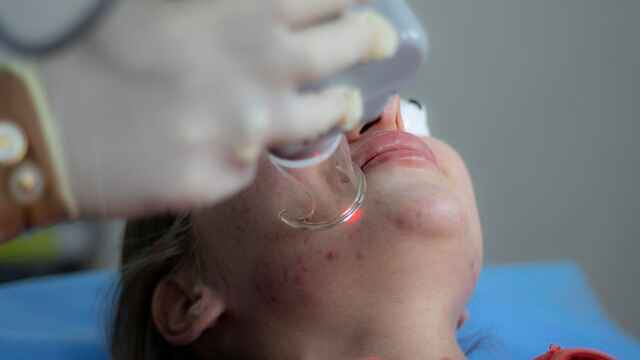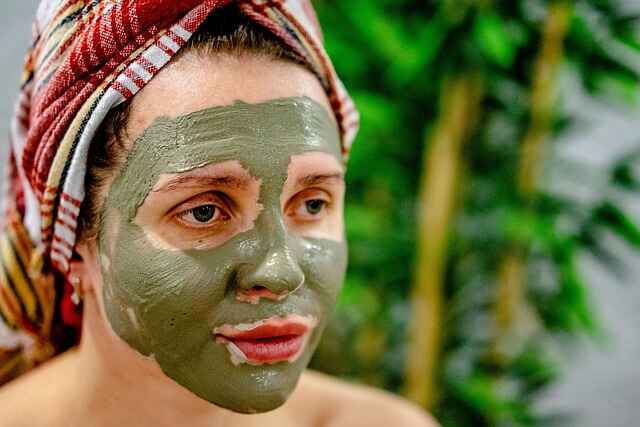What is acne?
Acne is a chronic skin condition that causes inflammation and results in patches and pimples most frequently on the face, shoulders, back, neck, chest, and upper arms.
Although it can occur at any age, puberty is the most common time for it to occur because the sebaceous glands are the most active. Skin scars could develop, however, they are not hazardous. Both male and female adrenal glands emit male hormones, which stimulate the glands and cause them to produce oil.
Types of Acne
It can take several forms. They include:
- Blackheads – Blackheads are comedones (small bumps) that are visible on the skin’s surface. They are clogged with dead skin cells and excess oil. The black color is caused by the irregular reflection of light from clogged hair follicles.
- Whiteheads – Whiteheads are comedones that remain closed at the skin’s surface. This happens when an obstructed hair follicle’s entrance is blocked by skin cells and oil.
- Papules – Papules are inflamed comedones that form small red or pink bumps on the skin. This type of pimple may be sensitive to touch. Picking or squeezing can aggravate the inflammation and result in scarring.
- Pustules – They look like a whitehead with a red ring around it. Typically, the bump is filled with white or yellow pus. Pustules should not be picked or squeezed. Picking at the skin can result in the formation of scars or dark spots.
- Nodules – They are large, swollen pimples that feel stiff to the touch. They frequently cause pain and develop far beneath the skin.
- Cysts – Cysts are large pus-filled lesions that resemble boils. Cysts, like nodules, can be painful and should be treated by a dermatologist because they can scar.
- Acne Conglobata – One of the most severe types of acne is conglobate. Numerous inflammatory nodules related to additional nodules beneath the skin are involved. It can have an impact on the buttocks, arms, chest, and neck. Usually, it leaves scars.
- Acne Mechanica – It is caused by heat, friction, and pressure against the skin, which is frequently a side effect of sporting equipment like a helmet or baseball cap. It mostly affects athletes, sometimes known as sports-induced acne. Source
Also Read: Saffron Health Benefits, Nutrition, Properties, Precautions & Side Effects
What causes acne?
One of the main hormonal causes of acne is androgen hormones, which often start to become active around adolescence and early adulthood. Hormone sensitivity, bacteria on the skin’s surface, and fatty acids present in oil glands can all lead to acne. Acne can be led by:
- When Hormone level changes in a woman’s adolescence (During menstruation).
- Picking at an acne scar.
- Air pollution and particulate weather circumstances, especially high humidity.
- Stress, which increases cortisol levels, can exacerbate acne.
- Genetics.
- When follicles produce too much oil.
- Dead skin cells accumulate in the pores.
- Greasy cosmetics
- Some kind of bacteria in the pores.
Any of these issues can result in pimples, which form when bacteria grow in a clogged pore and the oil is unable to escape.

Risk factors
- Age. Anyone can develop acne, but teens are the ones who are most likely to do so.
- Hormonal changes. These changes are typical of puberty or pregnancy.
- Family history. Acne is genetically influenced. You will likely develop acne if both of your parents do.
- Greasy or oily substances. When oil or oily lotions and creams come into touch with your skin, acne may result.
- Friction. Items like phones, cell phones, helmets, tight collars, and backpacks can all contribute to this. Source
Symptoms
Acne symptoms might vary depending on how severe your disease is, such as:
- Pimples
- Papules
- Blackheads
- Whiteheads
- Nodules
- Cysts
Diagnosis
If you suspect you have acne, you should seek a diagnosis from a board-certified dermatologist.
A dermatologist can diagnose you based on an examination of your skin. To create a treatment strategy that is effective for you, they can assist in determining the sorts of lesions and their severity.
Treatment
More serious cases can be treated by a dermatologist or skin expert.
- They might suggest an oral or topical antibiotic or a gel or cream that is stronger than OTC drugs.
- A diluted corticosteroid injection by a specialist may be used to treat an inflamed cyst.
- For up to 6 months, oral antibiotics may be recommended for patients with moderate to severe acne.
- By suppressing the overactive gland, oral contraceptives can help control it in women. They are commonly used to treat acne on a long-term basis.
- Topical antimicrobials are also intended to reduce P. acnes in patients suffering from moderate to severe acne.
Also Read: Health Benefits Of Aloe Vera: Medicinal Uses, Precaution & Side Effects
Home remedies
- Drinking Green tea
- Moisturizer with aloe vera
- Apply witch hazel
- Take fish oil supplement
- Follow a low-glycemic diet
- Reduce dairy products
- Exercise regularly Source

Can acne be prevented?
While there is no foolproof way to get rid of acne forever, there are some habits you can incorporate into your daily routine that may help keep breakouts at bay. Here are some suggestions:
- Wash your face thoroughly
- Apply moisturizer
- Wear minimal makeup
- Avoid touching your face
- Limit sun exposure
- Avoid popping pimples
Also Read: Want to know about other skin disorders? Check out Skin Problems on Health Views Online.





